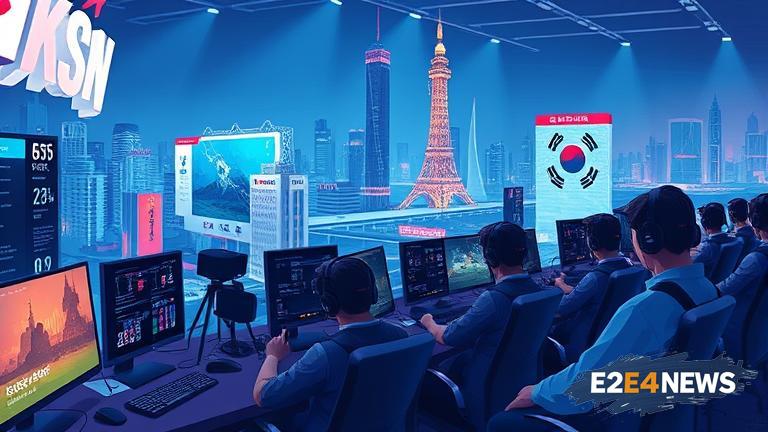South Korea’s esports industry has undergone significant development in recent years, transforming into a major player in the global gaming scene. The country’s strong internet infrastructure, highly competitive gaming culture, and government support have all contributed to its success. With the rise of esports, South Korea has become a hub for international tournaments, attracting teams and players from around the world. The country has hosted several high-profile events, including the League of Legends World Championship and the Overwatch World Cup. These tournaments have not only showcased the country’s gaming prowess but also generated significant revenue and created new job opportunities. The Korean government has been actively supporting the esports industry, recognizing its potential for economic growth and cultural development. In 2020, the government announced plans to invest 40 billion won (approximately $33 million USD) in the esports industry, with a focus on developing infrastructure, training programs, and marketing initiatives. This investment has helped to establish South Korea as a leader in the global esports market. The country is home to several top-tier esports teams, including SK Telecom T1, Gen.G, and DAMWON Gaming, which have won numerous international championships. South Korean players have also made a name for themselves in the global gaming scene, with many competing in international tournaments and leagues. The esports industry has also created new opportunities for Korean businesses, with companies such as Samsung, LG, and SK Telecom sponsoring teams and events. The growth of esports has also led to an increase in gaming-related tourism, with fans traveling to South Korea to attend tournaments and visit gaming venues. The country’s esports industry is expected to continue growing, with estimates suggesting that it will reach 1 trillion won (approximately $830 million USD) in value by 2025. As the industry expands, it is likely to have a significant impact on the country’s economy and culture. The esports industry has also been recognized as a key area for cultural exchange and diplomacy, with the Korean government using it as a tool to promote cultural understanding and cooperation with other countries. In addition to its economic and cultural benefits, the esports industry has also been credited with helping to promote social skills, teamwork, and communication among young people. However, the industry also faces challenges, including concerns over gaming addiction, player burnout, and the need for better regulation and support for players. Despite these challenges, the future of South Korea’s esports industry looks bright, with the country well-positioned to remain a leader in the global gaming scene. The industry’s growth is expected to continue, driven by the country’s highly competitive gaming culture, government support, and the increasing popularity of esports around the world. As the industry continues to evolve, it is likely to have a significant impact on the country’s economy, culture, and society. The esports industry has also been recognized as a key area for innovation and technological development, with the country’s gaming companies and research institutions working together to develop new technologies and products. The growth of esports has also led to an increase in investment in gaming-related infrastructure, including arenas, stadiums, and training facilities. The country’s esports industry has also been credited with helping to promote social responsibility and community engagement, with many teams and players involved in charitable initiatives and social causes.
